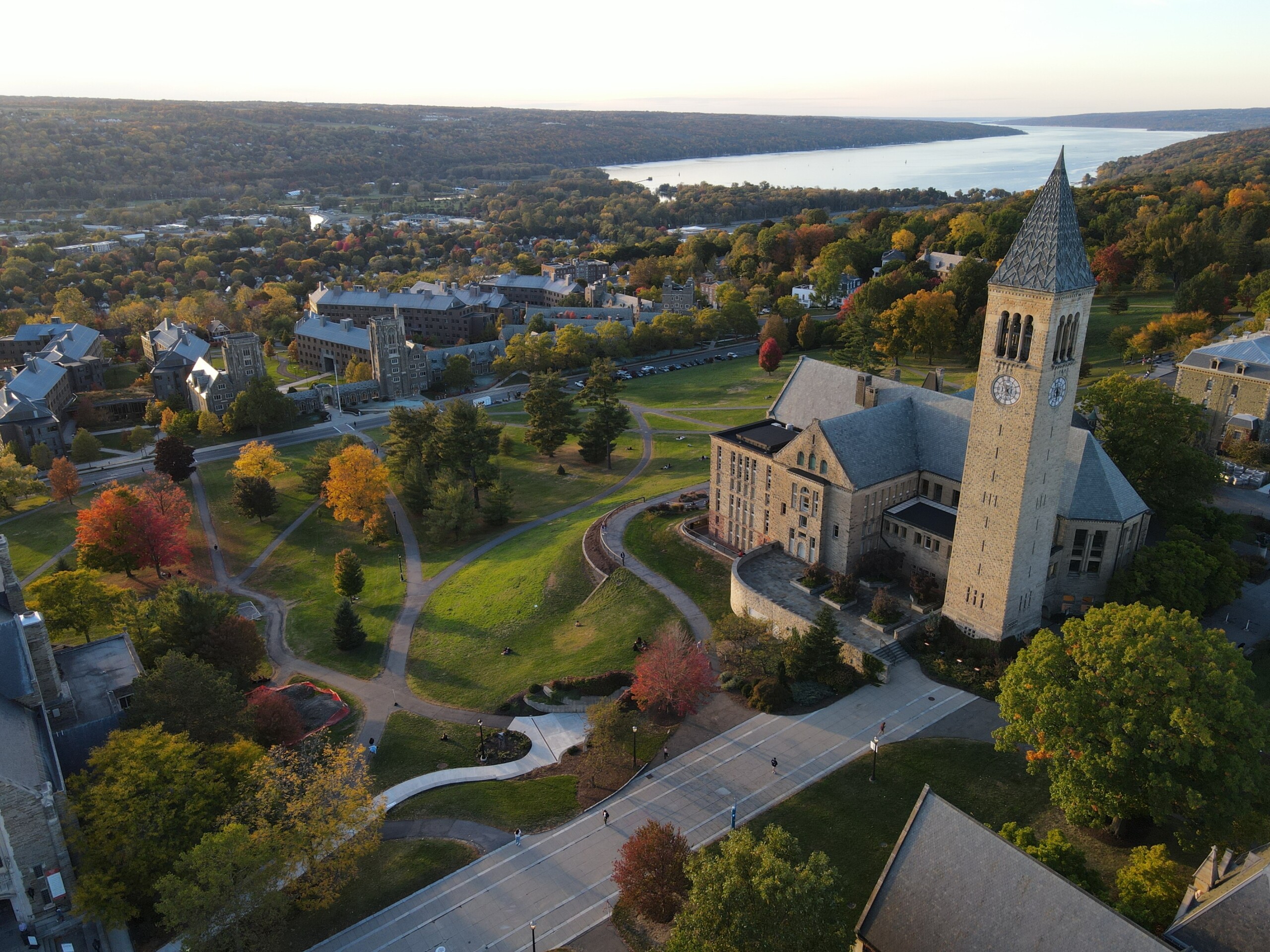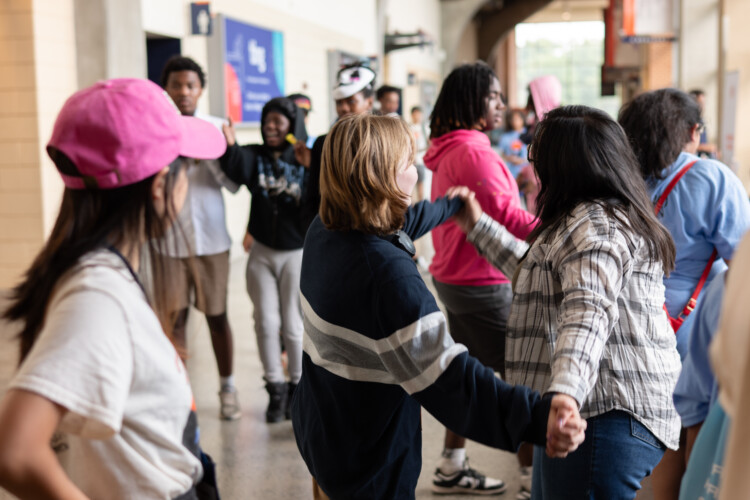With the Spencer Foundation, the Doris Duke Charitable Foundation, and the American Institutes for Research (AIR), we are proud to announce the winners of the 2021 Institutional Challenge Grant competition. The Institutional Challenge Grant encourages university-based research institutes, schools, and centers to build sustained research-practice partnerships with public agencies or nonprofit organizations in order to reduce inequality in youth outcomes. Equally important, grantee institutions must shift their policies and incentives to value collaborative work and help build the capacity of the partner organization to use evidence from research in its decision-making.
The newest grants, amounting to nearly $2,000,000, are being awarded to Johns Hopkins University, Northeastern University, and the University of California Santa Cruz. These institutions will work in partnership with local nonprofits or public agencies to address challenges such as youth suicide, youth employment, and educational inequality. The William T. Grant Foundation will also supplement a grant to Cornell University’s College of Human Ecology, the Foundation’s first-ever Institutional Challenge Grantee (2018), to sustain their ongoing efforts to reduce racial and ethnic inequality in access to effective opioid treatments and services, and to continue fostering institutional changes that foster community engaged research.
The newest grants, amounting to nearly $2,000,000, are being awarded to Johns Hopkins University, Northeastern University, and the University of California Santa Cruz. These institutions will work in partnership with local nonprofits or public agencies to address challenges such as youth suicide, youth employment, and educational inequality.
Adam Gamoran, president of the William T. Grant Foundation, stated: “Even as vaccines bring hope for an end to the COVID-19 pandemic, there is much to be done to address the social problems it has laid bare. Both research institutions and nonprofit organizations will have key roles to play in rebuilding society in the years to come. Innovative universities that support partnerships between researchers, policymakers, service providers, and communities will go a long way toward enhancing their public impact.”
Institutional Challenge Grantees conduct rigorous research on strategies to reduce inequalities in youth outcomes, take steps to create an institutional infrastructure for supporting and rewarding community-engaged research, and strengthen the capacity of partner agencies to use research in their practice. The program’s six previously funded partnerships are demonstrating success in all three areas. In one project, research uncovered a gap in culturally-relevant parenting programs available to the community, leading to collaborative work with the partner organization address the shortage. Other projects have demonstrated the potential for significant institutional change, including new university leadership positions focused on encouraging and supporting community engaged research and new criteria for evaluating faculty that conduct community engaged research.
“The coronavirus pandemic and the racial reckoning taking places across our country have highlighted the deep inequities that have persisted for generations in the United States and have made it even harder for African American and Latino people, and those living in poverty, to thrive in the workplace,” said David Myers, president and CEO of AIR, which is co-funding one of the grants through its Equity Initiative. “By collaborating directly with those in the field, we can identify effective strategies focused on summer youth employment opportunities and advancement for young people and make sure those practices and programs are implemented effectively and equitably.”
Lola Adedokun, program director for child well-being at the Doris Duke Charitable Foundation said: “This locally relevant research holds the powerful potential to inform how institutions, researchers, practitioners, and systems leaders can apply evidence-based interventions to equitably transform social sector systems. We are proud to make this investment at a time when the pandemic and social justice movements have made the need for this work ever more apparent.”
Na’ilah Suad Nasir, president of the Spencer Foundation stated: “There are many so many positive aspects to this grant: cultivating research-practice partnerships, reducing inequality, and encouraging institutional change. Research-practice partnerships, in which researchers, schools, and community partners work together, have the potential to be transformative for young people. We couldn’t be more excited about this important work.”
This year’s Institutional Challenge Grants:
Enhancing Nursing Capacity to Understand and Address the Needs of Native American Youth on the Fort Belknap Reservation
Teresa Brockie, Johns Hopkins University School of Nursing, and Karen Yazzie, Fort Belknap Indian Community, Fort Belknap Tribal Health Dept.
(Co-funded by the William T. Grant Foundation and the Doris Duke Charitable Foundation)
Johns Hopkins University and the Fort Belknap Indian Community will conduct and use research to develop a culturally-responsive intervention for preventing suicide among adolescents and young adults of the Nakoda and Aaniih Nations. Through a community learning model with the Hopkins team, Fort Belknap nurses will learn applied research methodologies and will work as part of the research team focused on reducing health disparities. In the first phase of the work, they will use focus groups and interviews to identify and analyze how the social environment contributes to or protects against youth suicide. The team will then use survey data to measure individual, relationship, community, and societal risk and protective factors against youth suicide and suicide ideation. The project will utilize a Tribal Advisory Board and will center youth voice throughout the project design and execution. At the same time, Johns Hopkins University School of Nursing will engage in several activities to build its capacity for applied research, including integrating Indigenous methods into the curriculum to build Indigenous research methodologies in School of Nursing scientists, acknowledging their partners at the Tribal college through faculty appointments in the School of Nursing, and conducting fundraising to support an endowed professorship on Native American health. The university has also established a Center for Community Innovation and Scholarship, which supports faculty in developing sustainable models to promote the well-being of underserved populations, using research-practice partnerships as a key mechanism to for this work.
Youth and Undergraduate Transformation to Harness Community Change (YOUTH-C2)
Rebecca London, University of California, Santa Cruz, Dept. of Sociology, Keisha Browder, United Way of Santa Cruz County
(Co-funded by the William T. Grant Foundation, the Spencer Foundation and the Doris Duke Charitable Foundation)
The University of California Santa Cruz (UCSC) and the United Way of Santa Cruz will partner to reduce inequalities for low-income, Latinx middle and high school youth and first-generation Latinx UCSC undergraduates. Youth of color and first-generation college students are less likely than their White middle-class counterparts to enroll in college, and once enrolled are less likely to persist and graduate. The project pairs youth participatory action research (YPAR) and undergraduate community-based research to give youth opportunities to build and use research skills to influence community change, leading them to see themselves as knowledge producers and changemakers and ultimately increasing their motivation to enroll in college. The research team will explore questions posed by youth participants through their YPAR projects and explore how participation in YPAR affects relevant youth outcomes. They will also evaluate the structural effects of the partnership on changes to guidance, actions, or policies related to youth voice at the United Way; changes in partnership formation between the university and community; and structural changes in the community as a result of the YPAR work. UCSC has proposed multiple strategies for institutional change, including: the creation of ethical guidelines for university Institutional Review Boards for community-engaged research; the launch of a Campus + Community community-engaged research center to create a centralized mechanism for supporting community-engaged scholarship and connecting community organizations with research partners; and improvements to processes for assessing community-engaged scholarship in personnel and departmental review processes.
Building a More Holistic and Inclusive Workforce Development System for Boston’s Youth
Alicia Modestino, Northeastern University, School of Public Policy and Urban Affairs, and Rashad Cope, Department of Youth Engagement and Employment, City of Boston
(Co-funded by the William T. Grant Foundation, the Spencer Foundation, the American Institutes for Research, and the Doris Duke Charitable Foundation)
Northeastern University is partnering with The City of Boston’s Department of Youth Engagement and Employment to reduce inequality among young people through the Boston Summer Youth Employment Program and other year-round workforce development programs that aim to improve long-term behavioral, economic, and academic outcomes for low-income young people. Building from an initial partnership formed through earlier collaborative work, the City of Boston has developed a joint research agenda with the university, through which the partnership will conduct a process evaluation to explore increasing coordination and alignment across youth-serving organizations and businesses; a differential impact study that explores what features strengthen the impacts of summer youth employment programs; an impact study of the new “earn and learn” pilot, where youth are paid to take college credits; and an impact study to assess the impact of a new virtual internship year-round employment program. For their part, Northeastern will pursue a number of organizational changes at the university to support community-engaged research, such as activities to build a supportive infrastructure for research-practice partnerships (RPPs), including post-doc and mid-career RPP positions; internal trainings on how to inform policy; incentives for RPP work, such as competitive grants and influencing merit review and promotion criteria; and efforts to change what it means to be a “successful researcher” at the university, including promoting RPP work internally and externally.
The Institutional Challenge Grant Continuation Award:
Protecting Vulnerable Families and Children in the Crosshairs of the Opioid Epidemic: A Research-Practice Partnership
Rachel Dunifon, Cornell University, and Anna Steinkraus, Cornell Cooperative Extension, Tompkins County
(Funded by the William T. Grant Foundation)
This continuation grant will extend the collaboration between Cornell University and Cornell Cooperative Extension–Tompkins County to address the impact of the opioid epidemic on low-income, racial-ethnic minority youth in rural communities. The initial grant identified promising strategies for reducing inequality for rural youth whose parents struggle with substance misuse. The team now has three main streams of research activity. The first will include two projects focused on parenting programs: 1) an examination of the effectiveness of virtual service delivery of the Strengthening Families Program, and 2) the development of a new program that provides support to families after leaving Family Treatment Court supervision, a need identified through the initial grant. The second stream of research activities will focus on reducing racial inequality to treatments and services for Black families in Thompson County by better understanding the needs and experiences of these families. And the third stream of research activities will address racial inequalities in program access and outcomes across Cooperative Extension services. The initial grant generated institutional change at the university by securing financial resources to support community-engaged research and bringing the college recognition as a model for the university in this effort. The initial grant also saw the creation of a new Associate Dean for Extension and Outreach position, which embeds outreach and extension work into university leadership and strategic planning. Continuation funding will support the new Dean in developing opportunities and programs for community-engaged research. The College of Human Ecology will also launch a strategic planning process that places racial justice and engaged learning and research at the center of college activities. Building on their experience developing internal capacity to conduct and use research, CCE-TC will use the continuation period to grow professional development on inequality and virtual service delivery statewide, as well as their own data collection and evaluation tools to track how counties used the shared research to shape next steps.
Each new grantee will receive about $650,000 to carry out their proposed project. Grantees will have the opportunity to apply for two years of additional funding following success in their first three years. The Cornell grantee is receiving their additional two years of funding.
The first Institutional Challenge Grant was awarded in 2018. In 2019, the Foundation began to work with partners to expand the program to eligible institutions. In 2019, the Spencer Foundation joined the William T. Grant Foundation to fund two Institutional Challenge Grants; in 2020 the Doris Duke Charitable Foundation, Spencer Foundation, and the William T. Grant Foundation united to fund three grants. In 2021, the American Institutes for Research, the Doris Duke Charitable Foundation, the Spencer Foundation, and William T. Grant Foundation awarded an additional three grants.
Learn more about the Institutional Challenge Grant program >






